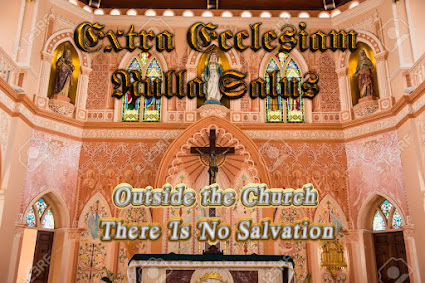As I promised earlier, I am returning to the subject of Pope Francis and the Holy Ghost.
Who is the Holy Ghost? What memory of Him do you have?
On the Monday before Pentecost, the Holy Father set the tone for the week.
He focused on the Holy Spirit who, he said, helps Christians remember the history of the faith and the gifts God has given. Without this grace, he said, the faithful risk slipping into idolatry.
Many Christians don’t know who the Holy Spirit is or what he is, he said, and the Holy Spirit “is always somewhat ‘the unknown’ of the faith.” And yet, he continued, the Holy Spirit is “God active in us” and “awakens our memory” of how Christ redeemed us of our misery and sin.
Without this memory, a Christian is not a true Christian, but becomes an “idolator,” the Pope went on, a “prisoner of circumstance, a man or woman who has no history.” To remember the grace of God is especially important, he said, when, for example, “a little vanity creeps in, when someone believes themselves to be a winner of the Nobel Prize for Holiness.”
The Holy Father concluded with an invitation to Christians to ask for the grace of memory, so that “they will not forget that they were slaves, and the Lord has saved them.”
Read more: http://www.ncregister.com/daily-news/pope-francis-and-the-holy-spirit#ixzz2UMwsRofoI'm impressed with the point that one who does not "remember" who the Holy Ghost is - is not really a true Christian, but an idolator! Can one be "saved" who is considered to be an idolator? Methinks not. This leads us to a more recent statement from one of Pope Francis' daily homilies, wherein some think the Pope is teaching Universalism. As an example, here is one such blog/article which apparently is attempting to draw that conclusion:
Catholicism gone catholic
According to Il Papa:
[Pope Francis] told the story of a Catholic who asked a priest if even atheists had been redeemed by Jesus.
"Even them, everyone," the pope answered, according to Vatican Radio. "We all have the duty to do good," he said.
"Just do good, and we'll find a meeting point," the pope said in a hypothetical reply to the hypothetical comment...
Of course, if Jesus has "redeemed" "everyone" including atheists, then why is doing good a "duty"? Why bother to do good?
Or are we all redeemed, but some are more redeemed than others?
If so, then I suppose one can do good to merit a bigger mansion in heaven. Or a place closer to the throne of God.
Okay, but still, what's wrong with the atheist who says, "Well, if it's all the same to you, I'd rather enjoy the fleeting pleasures of sin in this world, and have a lower place in heaven, thankyouverymuch"?
I responded on that blog with this:
Scott5/26/2013 12:16 AM
Brian said: Yeah, I was just speaking of the inceasing number of Catholics who believe in Universal Salvation, including apparently now the Pope.
sw: First off, this pope dies not believe in Universalism. Just because he stated the fact that Atheists are redeemed does not mean Athiests are or will be saved. To be redeemed simply means that the price for someone's redemption has been paid - and that price HAS been paid by Jesus Christ - for everyone, including Atheists. The difference between an Atheist and a true Christian is that the true Christian ACCEPTS this FREE GIFT or GRACE, the Atheist rejects it.
sw: Secondly, the context of the statement - which Patrick actually kind of includes here - does not say Atheists can be saved by doing good - only that we are ALL, Atheists included, commanded to do good. If the Atheist does good, Pope Francis is saying, then he and they can meet in that place, of doing good. A starting point, or common ground upon which to plant seeds and grow fruit.
sw: Thirdly, this pope has actually taught a form of "EENS" (Latin acronym of Extra Ecclesiam Nulla salus - or Outside the Church there is No Salvation). Pope Francis said that people cannot be fully united to Jesus outside of the Church during a Mass to commemorate Saint George, the saint he is named after. “You cannot find Jesus outside the Church,” he said April 23 in the Apostolic Palace’s Pauline Chapel.
Jimmy Akin responds here: http://www.ncregister.com/blog/jimmy-akin/did-pope-francis-say-that-atheists-can-get-to-heaven-by-good-works
It will be interesting to see how much more "spin" is put on this out-of-context statement from Pope Francis.



